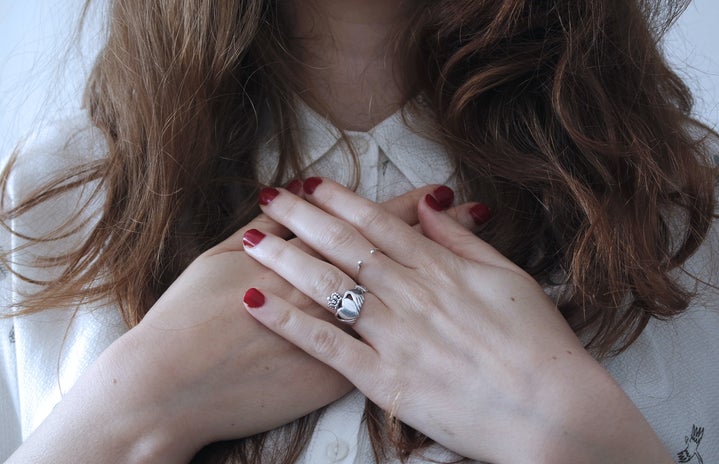Shyness is felt in the same way that anger, sadness, jealousy, or insecurity is; we often feel ashamed for feeling like this. In a way, shyness and feeling not only inherently disconnected from those around you, but unable to connect, contains all of these negative emotions within itself. We feel angry that we cannot “let loose”, sad that we are missing out on opportunities/relationships that require socializing to build, jealous of those who can connect with others effortlessly, and insecure that we are outcast due to something we brought upon ourselves. Shyness can be absolutely debilitating. It strips us of our voice and confidence. But, in ways that are often hard to see, shyness can build immense strength in a person, as well.
I was always shy to a degree growing up, but my shyness and discomfort in social situations did not peak until middle school. It was that time in which I remember distinctly hoping that nobody would notice me. For some, feeling disregarded is their worst nightmare, but for me at this time I would rather have been completely ignored than put in the spotlight of attention.
Group projects were a nightmare, especially if I was paired with extroverts, or even worse, a group of people who were already friends with each other but not with me. The behavior we exude when feeling shy and reserved does not help the situation, either, as being completely quiet in a social situation makes you stick out even more. It’s a bit ironic; you’re quiet because you don’t want to be noticed, but consequently, you’re noticed for being quiet. The thing is, shyness is only viewed as a negative trait because we view it in an undesirable light. Changing your perspective on shyness can help your confidence tremendously.
There are many articles focusing on how to “change shyness into confidence”, or “how to be less shy”. These, in my opinion, are only adding to the stigma that shyness is undesirable and needs to be corrected. The truth is, you can be shy while also being confident, connected, and having a strong sense of self. For me, shyness never meant that I had nothing to say. In fact, I have always felt as though I have a lot to say, but the problem was that in social situations, I felt as though my words would never be valued, understood, or sometimes even respected by my peers. As I grew older, I realized that this worry is completely irrational because for the most part, people have reacted positively to me being more verbally open. This doesn’t mean I’m not still shy to an extent now, but at the same time, my perception of myself and how others may view me has completely changed for the better.
It all comes down to changing an insecurity into a strength. With shyness comes speaking less, right? So, that means that shy people tend to be better listeners. Better listeners tend to be more empathetic and in tune with their emotions. Notice how all of these positive traits (good listener, empathetic, emotionally intelligent, caring, introspective, etc.) come from being shy, a trait that you can just as well view as negative if you choose.
Think about the protagonist in your favorite book/movie. With the exception of few, most main characters are the shy, introspective, blend-into-the-background type. But, does this mean they are any less loveable and relatable? No! It’s actually quite the opposite. In fact, most of the time what makes a character stand out and shine is their quiet sensibility. Imagine if the main characters of Beauty and the Beast were Gaston and the townspeople who outcast Belle for being quiet. The film would be a lot less intriguing, because part of the reason we adore this film is because we adore Belle for all that she is: shy, but in effect charming, mysterious, and fascinating. I know this is a fictional movie (a Disney princess movie and all), but don’t let that stop you from applying it to your own situation. Your shyness can be a major strength, and one of the reasons why people appreciate you. It all starts with a change in mindset.



